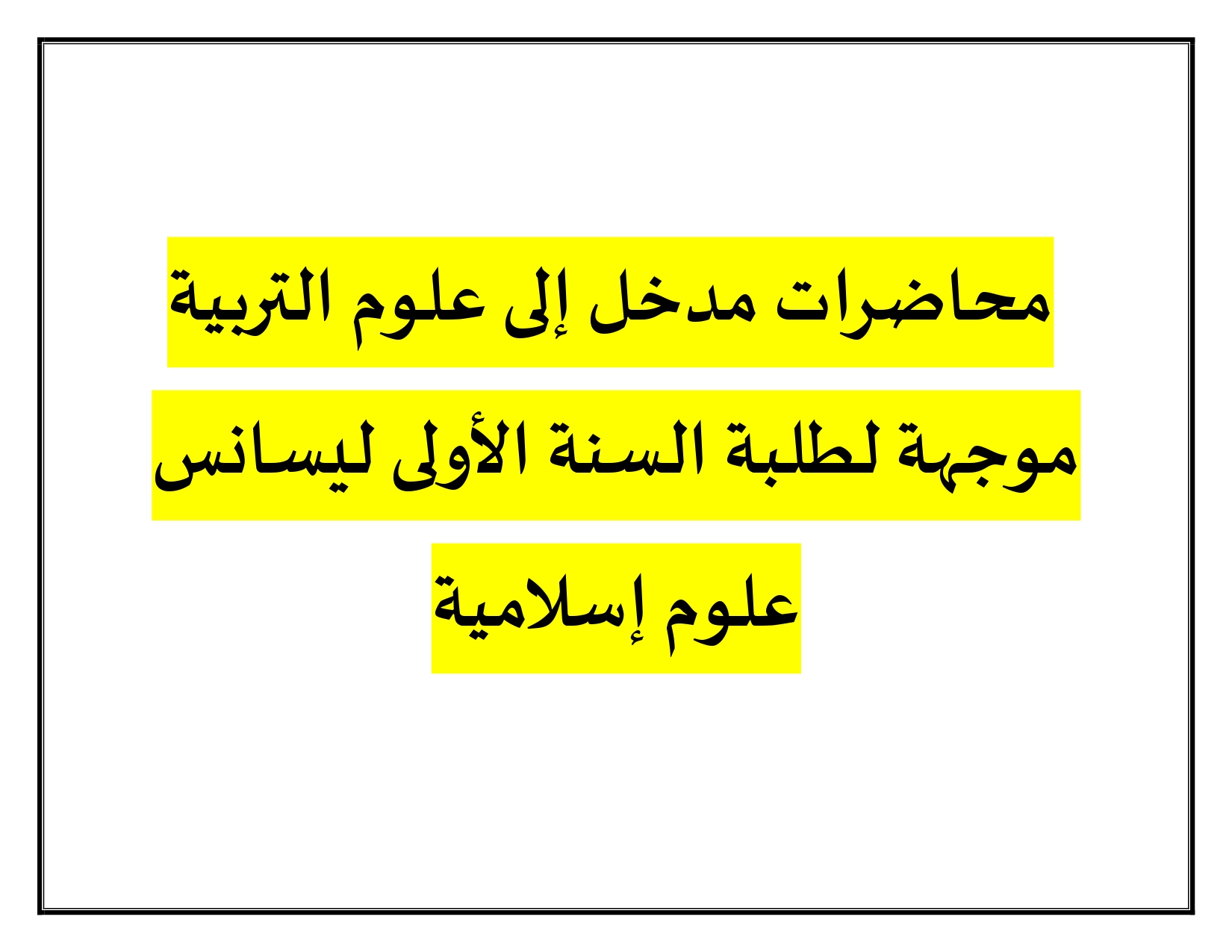L1 sciences islamiques

هذا المساق هو مادة البرمجة والذكاء الاصطناعي المقرّرة لطلبة السنة الأولى علوم اسلامية، ويُدرَّس خلال السداسي الثاني من السنة الجامعية الحالية. يهدف المساق إلى تعريف الطلبة بالمفاهيم الأساسية للإعلام الآلي، والتفكير الخوارزمي، والبرمجة بوصفها منهجاً لحل المشكلات، إضافة إلى تقديم مدخل مبسّط إلى الذكاء الاصطناعي وتطبيقاته في العلوم الإنسانية.
يركّز المساق على الفهم المفاهيمي والنقدي للتقنيات الرقمية وأثرها في البحث الإنساني، مع إبراز حدود استخدام البرمجة والذكاء الاصطناعي وأبعادها الأخلاقية، دون اشتراط خبرة تقنية مسبقة، وبما يتلاءم مع طبيعة التخصصات الإنسانية.

This course is the English language module for first-year students , taught during the second semester of the current academic year. It aims to develop students’ foundational academic English skills, with particular emphasis on reading comprehension, key terminology related to the social sciences, and effective language use in an academic context. The course includes lessons designed to support students’ understanding of academic texts and to enhance their communication skills relevant to their field of study

محاضرات في مدخل إلى علوم التربية
موجهة إلى طلبة السنة الأولى ليسانس علوم إسلامية
السداسي الأول من السنة الجامعية 2024/2025
- Enseignant: HADDAD NACEUREDDINE

Learning basic vocabulary of the specialty, and learning about the pillars of Islam. Learners will be able to speak and write terms specified to their specialty in a foreign language.
- Enseignant: aya laifa

تهدف مادة الإعلام الآلي إلى تزويد الطلبة بالمفاهيم الأساسية في مجال الحوسبة واستخدام التكنولوجيا، مع التركيز على المهارات العملية اللازمة لاستخدام الحاسوب في الأبحاث والدراسة الأكاديمية. تُعد المادة خطوة أولى لفهم التقنيات الحديثة التي أصبحت جزءًا لا يتجزأ من الحياة اليومية والعمل الأكاديمي.
أهداف المادة:
تعريف الطلاب بتكنولوجيا الحاسوب:
- فهم مكونات الحاسوب الأساسية (المادية والبرمجية).
- التعرف على المفاهيم الأساسية كأنظمة التشغيل، البرمجيات، والشبكات.
تعليم المهارات العملية:
- تطوير مهارات استخدام برامج الإنتاجية مثل Microsoft Office (Word، Excel، PowerPoint).
- تعلم أساسيات البحث عبر الإنترنت وإدارة البيانات.
تعزيز التفكير الرقمي:
- فهم أهمية التكنولوجيا في المجال الأكاديمي والاجتماعي.
- تطبيق التقنيات الحديثة لتحسين الكفاءة في الدراسة والعمل.
- Enseignant: Tahri Souaad

This course on Computer Science, offered by the Faculty of Humanities and Social Sciences, is an innovative approach to distance learning. It is specifically tailored to enhance students' practical skills in using Microsoft Word, one of the most essential tools in academic and professional settings. The course content, delivered through engaging video lectures, is a seamless continuation of what has been covered in the theoretical and practical classes.
These video lessons aim to provide students with basic yet comprehensive knowledge about Microsoft Word. They cover various aspects, such as creating and formatting documents, using templates, inserting images and tables, and applying advanced text editing techniques. By integrating theoretical knowledge with hands-on practice, the course ensures that students gain a well-rounded understanding of Word’s functionalities.
Designed to support remote learning, these videos are an excellent resource for students who wish to reinforce their learning outside the classroom. They offer the flexibility to learn at one's own pace, making them ideal for revising concepts and enhancing proficiency in Microsoft Word. This approach aligns with the faculty's commitment to providing accessible and high-quality education to all students, regardless of their location
